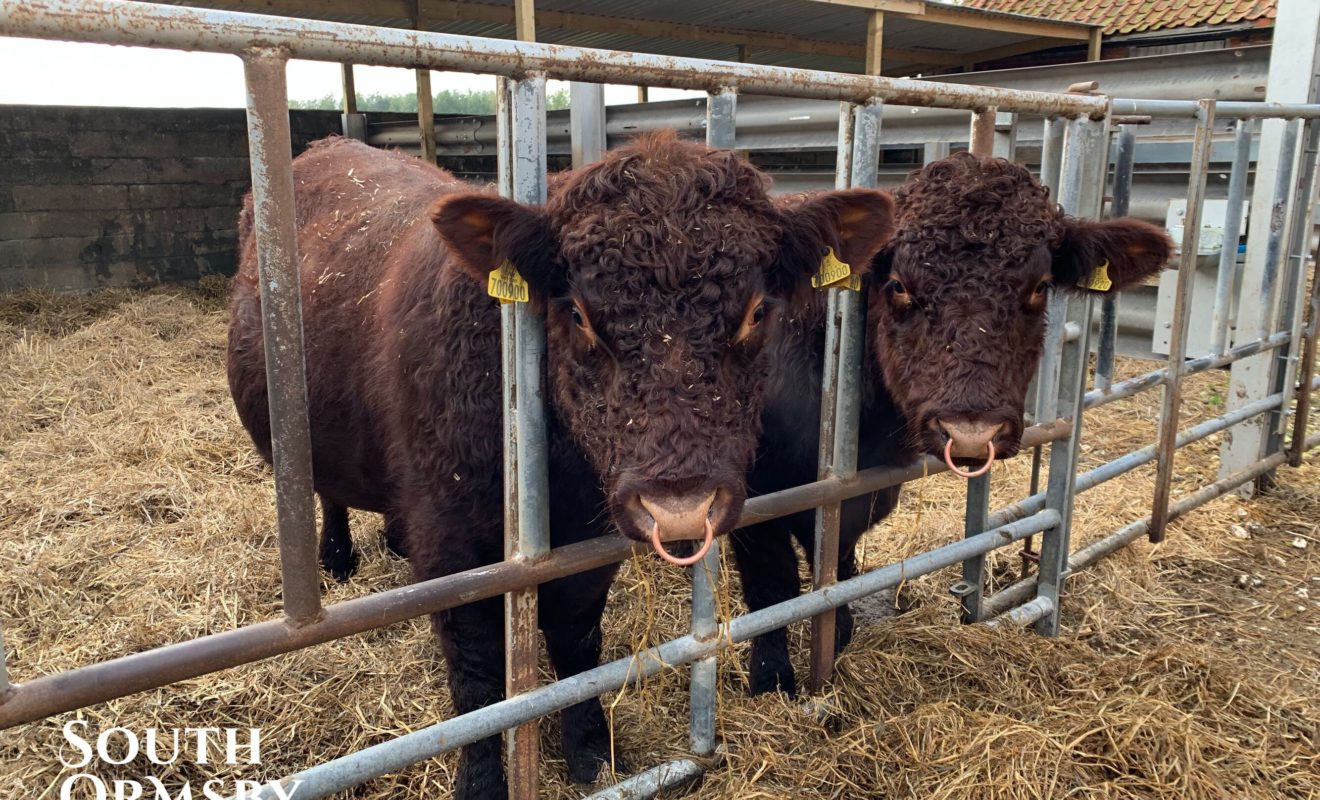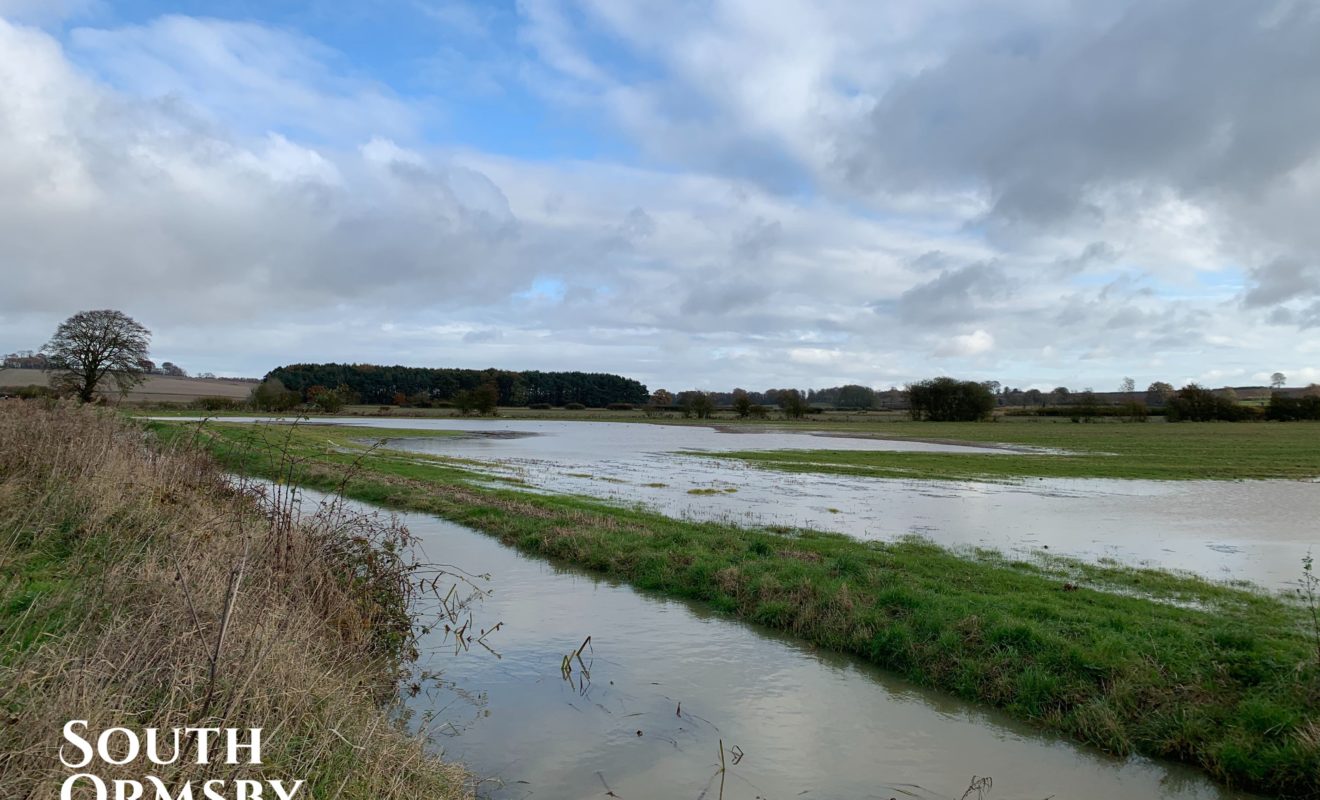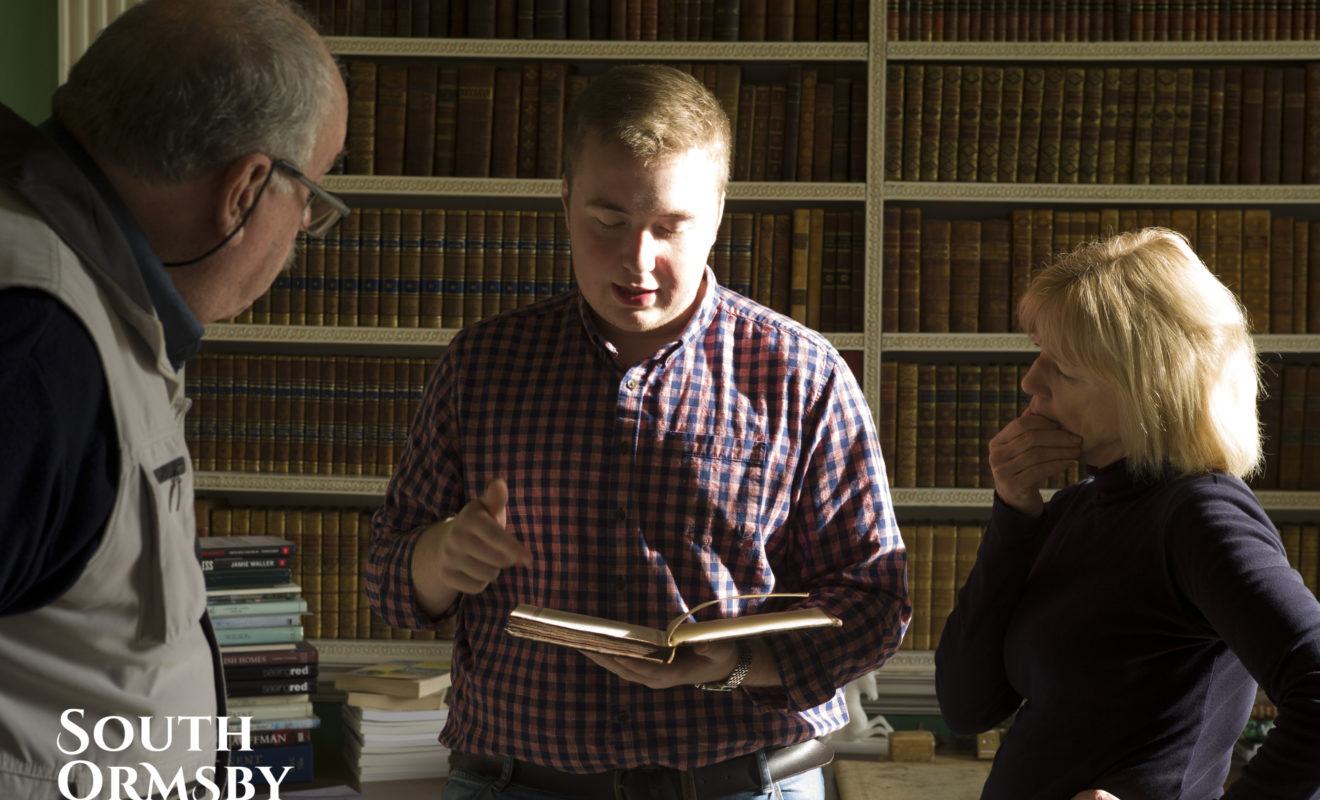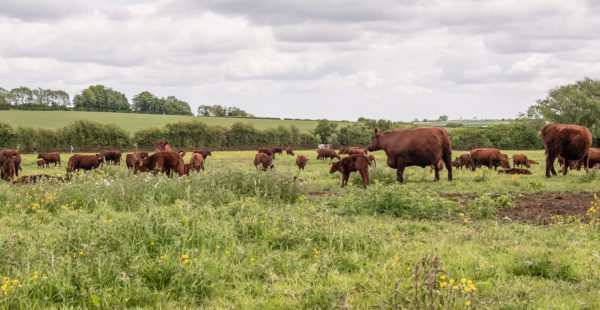A Week on the Estate: History Uncovered, Fields Deluged & Cattle Bedded Down
Despite seemingly unending rain and waterlogged fields, South Ormsby enjoyed a week of industry, enterprise and discovery.
Keal Yard is showing its value as winter bears down on us. A pair of handsome young bulls fast approaching their second birthdays were pictured enjoying the amenities. In the meantime, the younger stock from the Massingberd-Mundy Lincoln Red herd moved into their winter quarters and gratefully received their bedding.
In the fields, yet more rain on saturated earth brought flooding to ours and our neighbours’ fields. All dykes around our fields have been cleaned out and are doing their job well. However, those areas maintained by the Environment Agency haven’t been maintained to the same standard. Consequently, the water can’t get away and backs up the field drains. On a positive note, unlike some farms in the county, the estate hasn’t had the serious issue of banks bursting.








